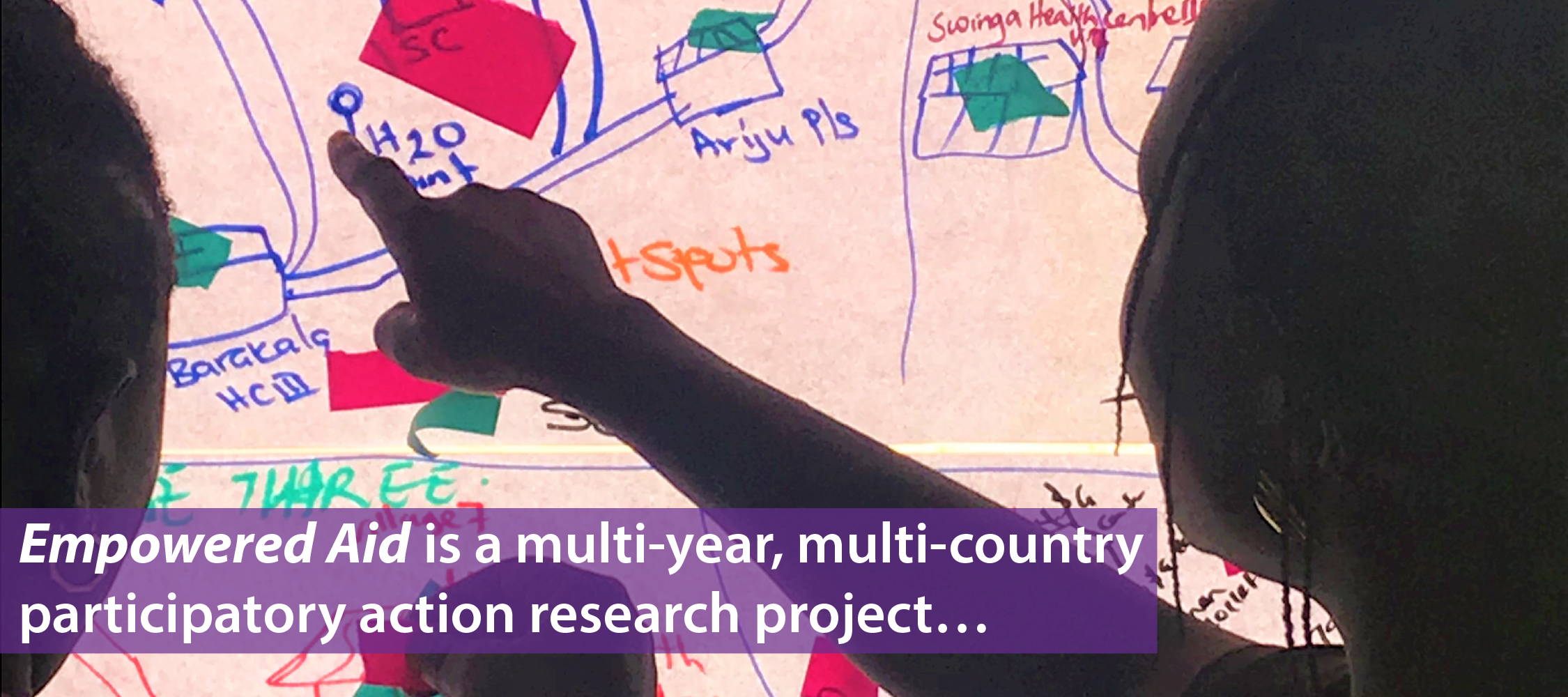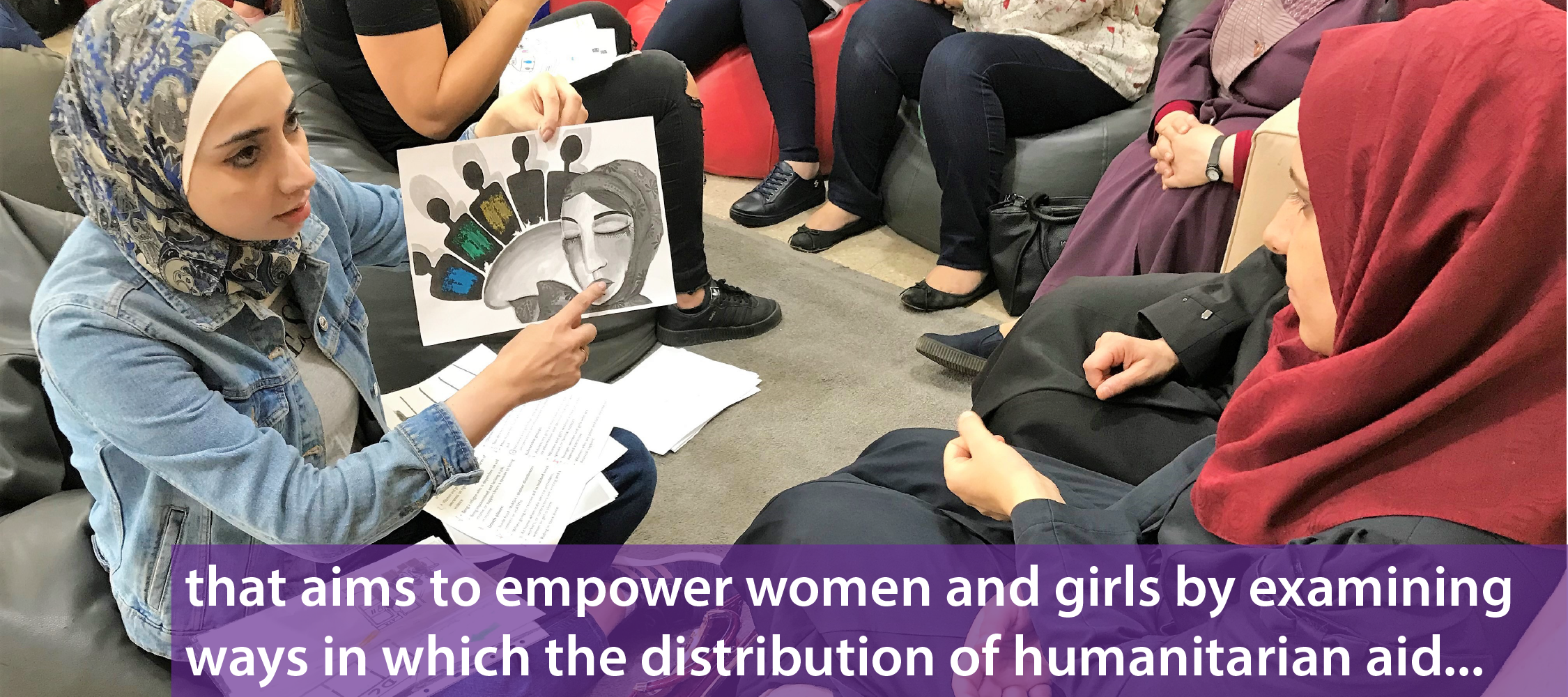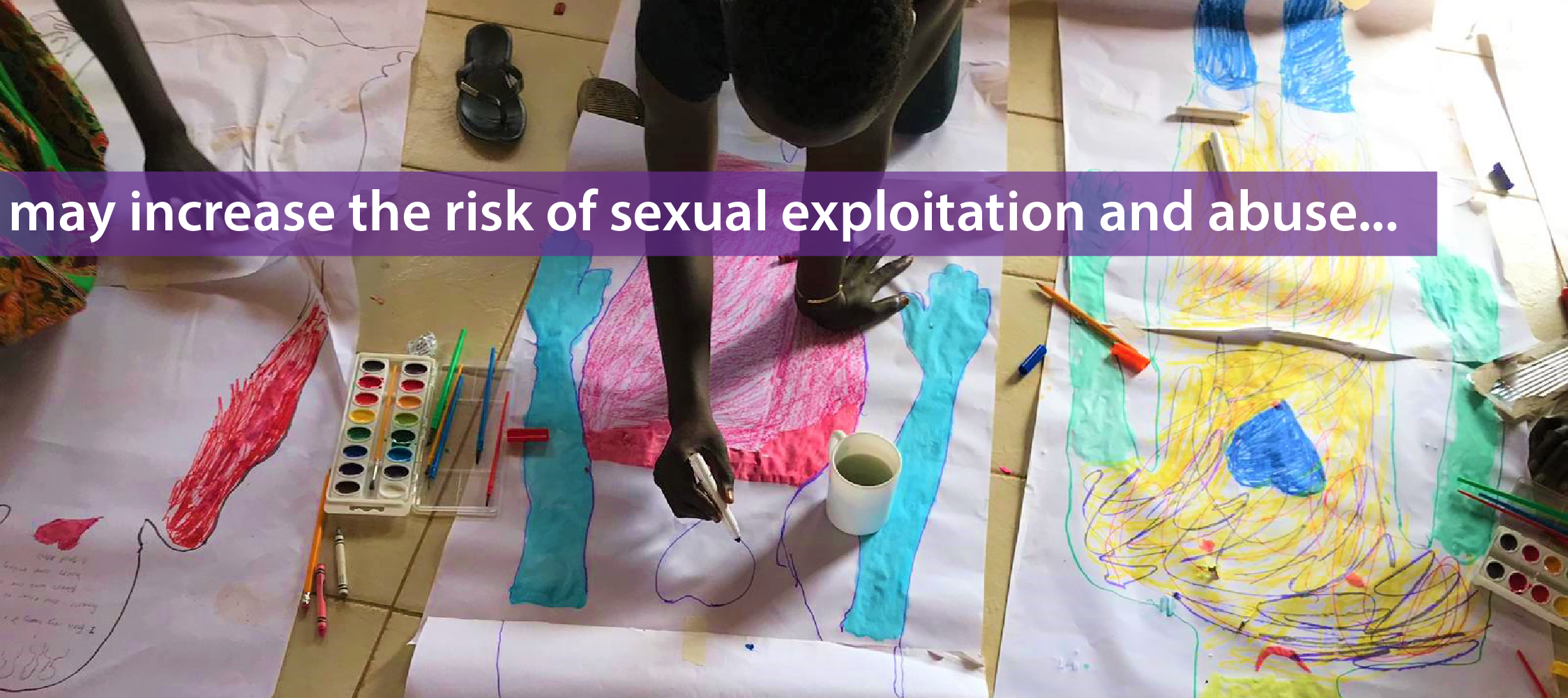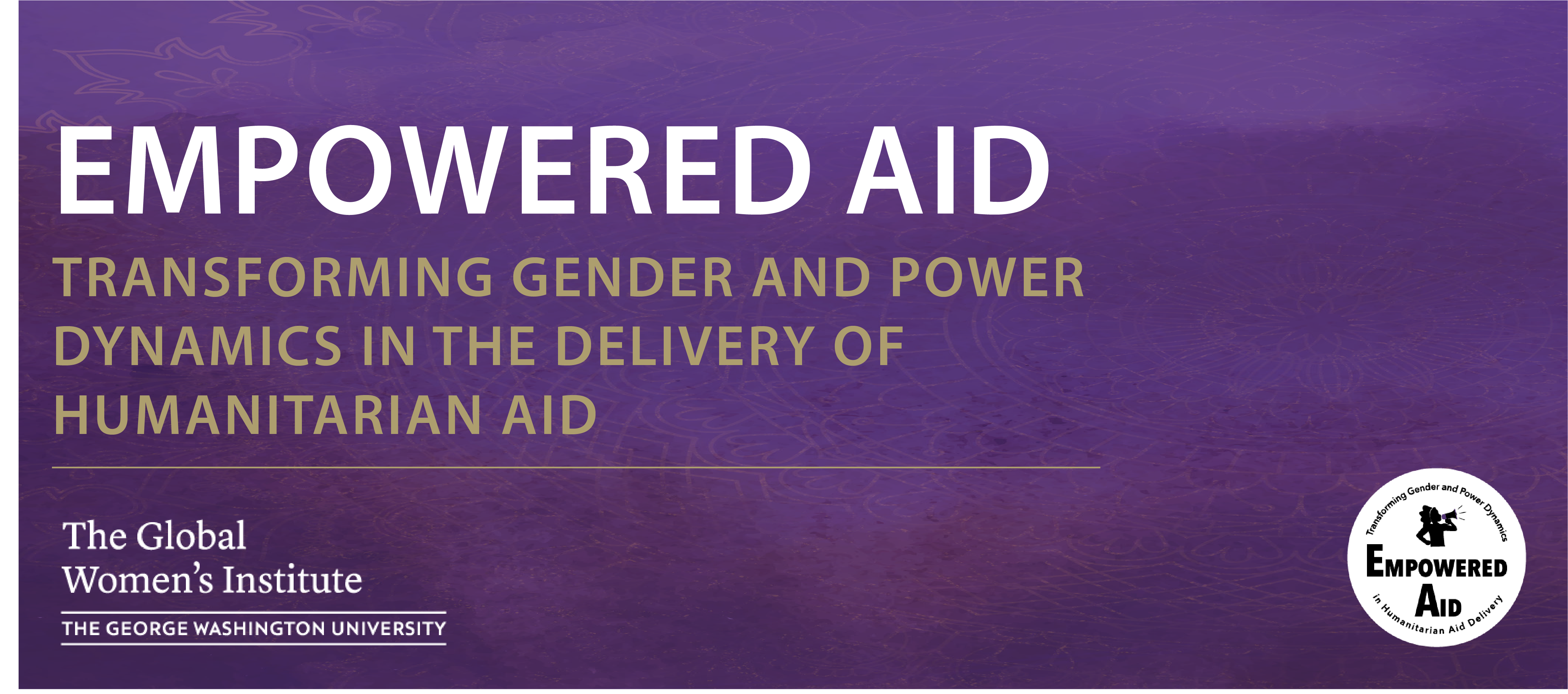Home
The Global Women's Institute
Empowered Aid
Transforming Gender and Power Dynamics in the Delivery of Humanitarian Aid
In 2002, the United Nations High Commissioner for Refugees and Save the Children reported extensive sexual exploitation of and violence against refugee children by humanitarian aid actors in West Africa, shocking the international community. Steps taken since then to protect women and children in humanitarian aid settings have primarily focused on response mechanisms and punitive action.
Empowered Aid is focused on prevention of sexual exploitation and abuse (SEA). We seek to develop humanitarian aid distribution models that reduce power disparities and give those most affected by abuse—refugee women and girls—a sustained voice in how aid is delivered.
Empowered Aid is led by the Global Women’s Institute at the George Washington University (GWI), in partnership with local and international aid actors, as well as affected communities in refugee-hosting countries around the world.
73%
of women respondents reported feeling fearful during the food distribution process
45%
of women respondents preferred to access services and report complaints at NGOs specific for women and girls
40%
of women and men identified door-to-door aid distribution as safer than receiving aid at large, central sites
53%
of women respondents said sex-segregated lines at distribution points would make women and girls feel safer
Empowered Aid calls on aid actors and stakeholders worldwide to implement recommendations and tools that can help reduce the risk of sexual exploitation and abuse in humanitarian aid delivery, and give refugee communities an active role in this process.
Research Application
Check out Empowered Aid's risk-reduction research and findings, conducted across numerous countries, including Lebanon, Uganda, Kenya, Jordan, Tanzania and Turkey.
Partnership Support
We can provide remote or in-person technical support on how to apply Empowered Aid’s findings and recommendations to mitigate SEA risks in your own work. Submit an inquiry form to find out more!
Capacity Building
800+ practitioners have enrolled in the Empowered Aid Online Course to mitigate sexual exploitation and abuse in aid distribution. Learn more and sign up for the course.
“She might go to the center or to the organization to receive the assistance and the employee there might ask her to do something in order to grant her the assistance, although she is registered and has the right to take the assistance, he asks for something in return, he might ask her to go out with him, for example… she is obliged to.”
- Syrian adolescent girl living in Lebanon as a refugee





